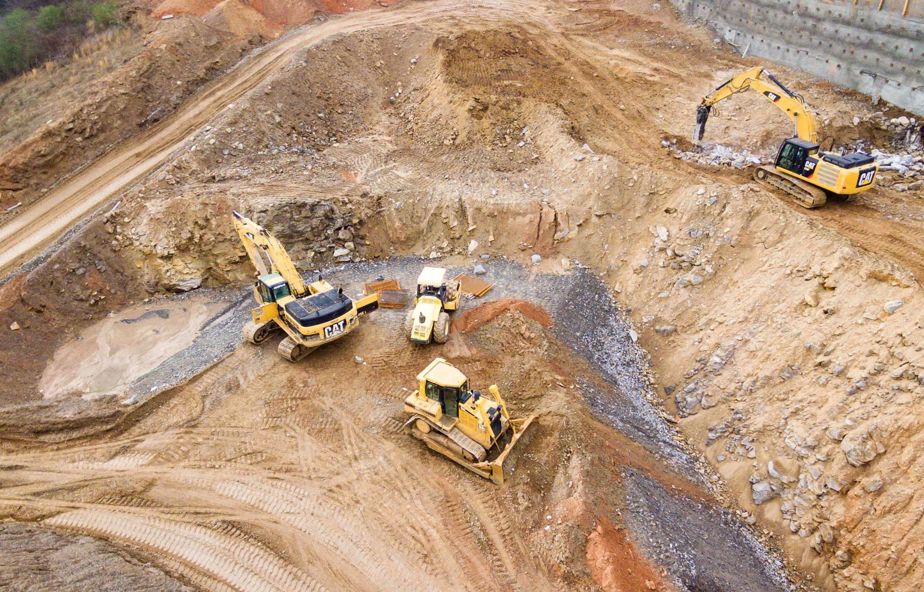Hiring in Mobile Plant and Equipment? Safely Navigate the Hire Agreement Minefield.

We are amid a transport, urban and civil infrastructure boom. The sector’s spending soared from around $30 billion in 2019–2020 to a projected $49 billion in 2023–2024. There is also considerable activity in the mining and construction sectors.
Current medium- to long-term economic conditions are a complication, as NTI’s Gary Woodhams notes: “disrupted supply chains will be a global issue well into 2023–24. Accessing new equipment, parts and labour has become difficult.”
Businesses wanting to take advantage of these opportunities will need access to the right mobile plant and equipment (MPE); hiring equipment is a viable option to complement your existing needs and build capacity for new contracts.
Why businesses hire
Depending on their business profile, commercial considerations and needs, there are various triggers as to why a business would hire in additional MPE.
We understand the decision to buy or rent will come down to productivity, need and cost/benefit calculations. Key considerations include:
- Economic boom times: Equipment shortages may force your hand.
- Economic downturn: You might downsize your fleet to cut overheads and hire in MPE.
- Financial: MPE purchases are expensive, and operational costs impact profitability and cash flow.
- Usage: Most businesses will mix buying (or leasing) and hiring MPE depending on their needs (60% usage is usually when purchasing becomes viable).
- Workload: If your workload fluctuates, hiring can cover peak times without leaving unproductive assets on your books through off-peak periods.
“From a business perspective, the first factor is the external environment, understanding your sector’s current and future outlook and recognising the opportunities. From there, it just comes down to planning,” Gary says, noting that sourcing MPE is a critical part of the process.
“It’s a challenge, particularly in the current environment, but hiring equipment can create opportunities and help you keep pace with demand.
“However, it can come with peril.”
The hire agreement
There’s one downside to hiring in equipment: the hire agreement. Poorly drafted or unfair agreements can disadvantage the hirer and cause disputes. Signing onto a poor hire agreement also represents a significant financial risk. Key considerations include:
- Understanding: It’s critical to understand the agreement’s obligations, risks, indemnities and insurance requirements – and to mitigate them if needed.
- Acceptance: Don’t accept an agreement you’re not comfortable with or don’t understand – it’s a competitive market, so shop around.
- Insurance: Who carries which risks, and are there particular requirements or operational risks that need cover? Are you insuring for market or replacement value – and can your policies comply?
Damage waivers: Damage waivers are not insurance policies. All they do is release the hirer from certain types of damage, not necessarily all damage to the hired MPE. If the MPE is road registered it is unlikely to cover any damage the hirer may cause to third parties whilst the MPE is being driven. They can be very difficult to interpret and commonly have onerous conditions, limitations and caps on coverage.
If anything’s unclear, obtain advice from your lawyer or insurance broker. If you’re unsatisfied, consider insuring yourself or sourcing an alternate supplier.
Contractual considerations
The best agreements have clarity on risk, including an insurance opt-in/opt-out for the hirer. If the hirer is required to insure, but a damage waiver or owner’s insurance remains an option. Make sure you understand the terms, are there any coverage gaps posing a potential uninsured financial exposure to your business. Can those exposures be mitigated?
Hire agreements are a contractual matter, so consult your lawyer. It will be money well spent. If you are hiring in considerable amounts of equipment, your lawyer may be able to assist with negotiating a fair and reasonable Master Hire Agreement with selected high-volume suppliers.
“You can do so much contractually,” Gary says. “If you want to avoid the grief, never accept an agreement with conditions you’re uncomfortable with or don’t understand.
“Businesses sometimes baulk at paying a lawyer to look over their contracts, but it’s a false economy. The cost means nothing compared to what a significant financial loss or prolonged dispute could be worth.
“Further, lawyers’ fees are fully tax-deductible, and you’ll have peace of mind.”
Insurance considerations
When evaluating the insurance position, our best advice is to speak with your broker.
They’ll help you assess your risks, suitability of coverage and whether or not you need additional coverage extensions to your insurance program.
“It’s important to assess and mitigate your risks,” Gary says. “And that’s where your broker comes in. An insurance broker is a professional risk advisor. Seek out, and be directed by, their advice. They’ll review the hire agreement, identify any coverage gaps and help ensure you’re protected.”
Obtaining the right advice and the right insurance are critical for protecting your business and its long-term viability.
Speak to your lawyer and insurance broker, and contact us today if you want to know more.